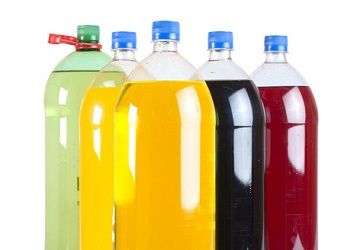Total Tooth Loss Linked to Consumption of Sugar-Sweetened Beverages
A research team found that about 26% of young adults in the US reported losing at least 1 permanent tooth. There was a positive correlation between tooth loss and sugar-sweetened beverage intake frequency.

Worldwide, young adults who consume high amounts of sugar-sweetened beverages (SSBs), like sodas, have been shown to have a higher incidence of dental caries, which in turn leads to a higher rate of total tooth loss. However, there still has not been much research performed on the independent role SSBs play in tooth loss among this population.
A new study was conducted with the goal of examining the association between tooth loss and the consumption of SSBs in young adults living in the US. In the study, researchers used data from the 2012 Behavioral Risk Factor Surveillance System to compare both factors in the sample population. In the data set, 22,526 adults aged 18-39 years completed a specific section called the Sugar Drink Module. The variable of specific interest was the daily frequency of SSB intake.
In the review of the data, the research team found that approximately 26% of young adults in the US reported losing at least 1 permanent tooth. There was a positive correlation between tooth loss and SSB intake frequency. In fact, the chance of losing 1 to 5 teeth was higher among young adults consuming SSBs anywhere from 0 to 2 times daily compared to other adults who did not consume such beverages at all. The odds of losing 6 or more permanent teeth were increased in young adults who drank SSBs from one to more than twice daily compared to non-SSB consumers.
The researchers concluded that even drinking less than 1 SSB daily significantly increased the chance of permanent tooth loss compared to young adults who did not drink any SSBs. The data suggested that the risk of tooth loss might be decreased if efforts are taken to reduce the consumption of SSBs among this sample population.
Some countries have already started to take action to limit consumer’s exposure to SSBs. At the urging of the World Health Organization (WHO), some countries have implemented new taxation systems on sugary drinks, and in the US, several cities in California and Colorado have adopted new measures that tax the purchase of these types of beverages. The push to increase taxes on these types of products is part of the effort by the WHO to reduce rates of worldwide tooth decay, obesity, and diabetes.
ACTIVA BioACTIVE Bulk Flow Marks Pulpdent’s First Major Product Release in 4 Years
December 12th 2024Next-generation bulk-fill dental restorative raises the standard of care for bulk-fill procedures by providing natural remineralization support, while also overcoming current bulk-fill limitations.